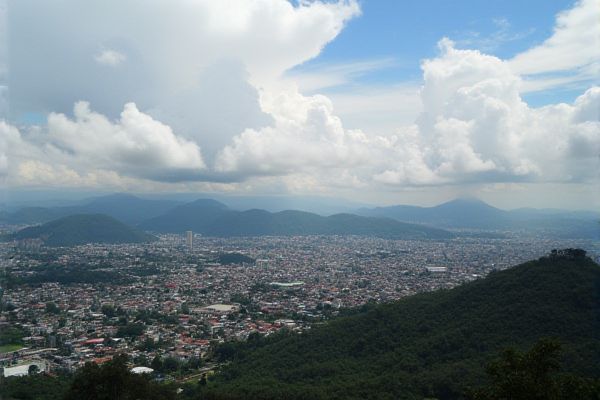
Moving to Indonesia checklist: Visa requirements and application process. Housing options and neighborhoods. Local culture and customs. Language basics and communication. Cost of living. Healthcare facilities and insurance. Education and schooling options. Transportation and traffic laws. Banking and financial services. Safety and emergency contacts.
Visa requirements and application process
To move to Indonesia, you must submit a passport valid for at least six months, passport-size photos, a completed and signed Indonesia visa application form, proof of travel arrangements, proof of accommodation, proof of sufficient financial means, and other specific documents depending on the visa type. The application process involves filling out the form accurately, attaching required documents, paying the visa fee, and submitting the application to the Indonesian Embassy or Consulate, or through the online e-Visa portal if applicable.
Housing options and neighborhoods
When moving to Indonesia, particularly Jakarta, expats have various housing options and neighborhoods to choose from. Popular areas include Kuningan, known for its modern and expat-friendly vibe near the Central Business District; Kemang, favored by expat families for its schools and entertainment options; and Menteng, a historically affluent neighborhood with a less modern ambiance. Other areas like Cilandak, Cipete, and Kebayoran Baru offer a mix of convenience, safety, and lifestyle amenities. For more detailed insights into these areas, visit Expat Arrivals to explore the diverse offerings of Jakarta's neighborhoods.
Local culture and customs
Integrating into Indonesian society is a meaningful journey that requires understanding and respecting local customs and norms. It is essential to dress modestly, especially in conservative regions, and to adapt to local practices such as removing shoes when entering temples or mosques. To enhance these experiences, one might explore participating in local festivals and learning Bahasa Indonesia, as these efforts can greatly aid in connecting with the community. Additionally, observing dining etiquette by using the right hand for giving and receiving items, and being mindful of body language, like not pointing one's feet at the table, reflects well on one's adaptability. Being polite, patient, and considerate of guidelines, such as avoiding public displays of affection and covering shoulders and legs during temple visits, can ensure a respectful and harmonious relationship with the local culture.
Language basics and communication
Learning fundamental Bahasa Indonesia phrases is crucial for navigating daily interactions in Indonesia. Expats should focus on basic greetings, directions, dining vocabulary, and commerce terms, while keeping in mind that colloquial Indonesian differs from formal Indonesian, with variations in pronouns and common expressions. The language is relatively easy to learn due to its simple grammar, lack of verb conjugations, and consistent word order. Expats can quickly achieve a basic conversational level by learning a few hundred essential words and focusing on sentence construction, despite the differences between formal and colloquial Indonesian. For more in-depth guidance, expats can explore this resource to learn Bahasa Indonesia through self-study or practice with locals. Understanding basic phrases such as greetings, introductions, and common questions can significantly help expats feel comfortable interacting with Indonesians on a daily basis.
Cost of living
The cost of living in Indonesia is significantly lower than in Western countries, with a single person averaging $559 per month and a family averaging $1,427 per month, including cheaper rent, food, and transportation expenses. To learn more about living abroad in this vibrant country, visit the Pacific Prime Blog for a comprehensive guide.
Healthcare facilities and insurance
When moving to Indonesia, expats should consider the limited quality of public healthcare facilities, which often fall short of Western standards, and opt for private health insurance that includes coverage for medical evacuation and access to private hospitals with modern facilities and English-speaking staff. Public health insurance (BPJS) is available to expats with a residency or work permit, but it has limitations, and many expats prefer comprehensive Private Insurance for better care and emergency services.
Education and schooling options
In Indonesia, expat families have several education options, including public schools that follow the Indonesian curriculum, private schools that often incorporate international curricula like the IB, and international schools that offer foreign curricula and are accredited by their home countries. Important considerations include language, curriculum, location, and cultural immersion. For more detailed information, you can visit Expat Arrivals, which provides a comprehensive guide about these options and helps families navigate the educational landscape in Indonesia.
Transportation and traffic laws
When moving to Indonesia, navigating traffic requires patience and strategy; use motorbikes for short distances, avoid peak hours, utilize local transportation apps, and prefer public transport. According to the Nomad Offshore Academy, foreigners need an international driving permit or a local driving license, and must follow rules such as driving on the left side of the road and carrying safety equipment like a fluorescent safety vest.
Banking and financial services
To open a bank account in Indonesia as an expat, it is essential to choose a bank, gather necessary documents such as your passport, work permit, and proof of residency, and visit the bank in person to fill out the application form. Some banks may require a minimum initial deposit and charge maintenance fees. For detailed information, you may refer to the comprehensive guide available at Expat Focus. This resource provides a rundown of what to expect when navigating banking services in Indonesia.
Safety and emergency contacts
To ensure safety in Indonesia, it is crucial to save essential emergency numbers such as the general emergency number 112, police, fire department, ambulance, and other specific contacts for natural disasters, search and rescue, and various services. Having these numbers readily accessible can be a lifesaver in emergency situations, providing quick access to the necessary help and support when needed most. For more detailed information and additional contacts, you can visit the Bali Expat website, a valuable resource for anyone residing in or visiting Indonesia.
